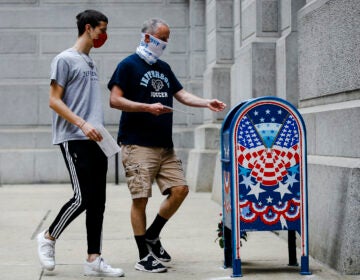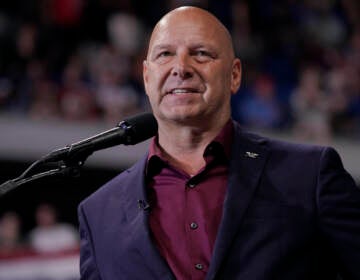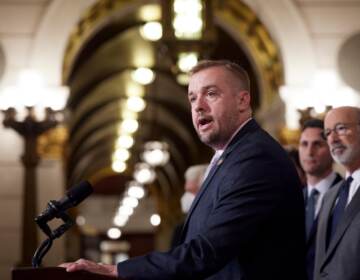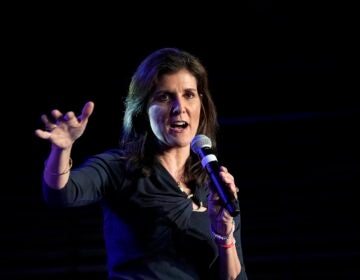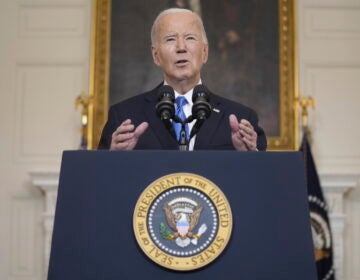Pa. Republicans try to make Philadelphia crime a central campaign issue — even outside of the city
The jarring campaign ads are meant to evoke an emotional response, but for some, the commercials fall flat and harm communities impacted by crime.
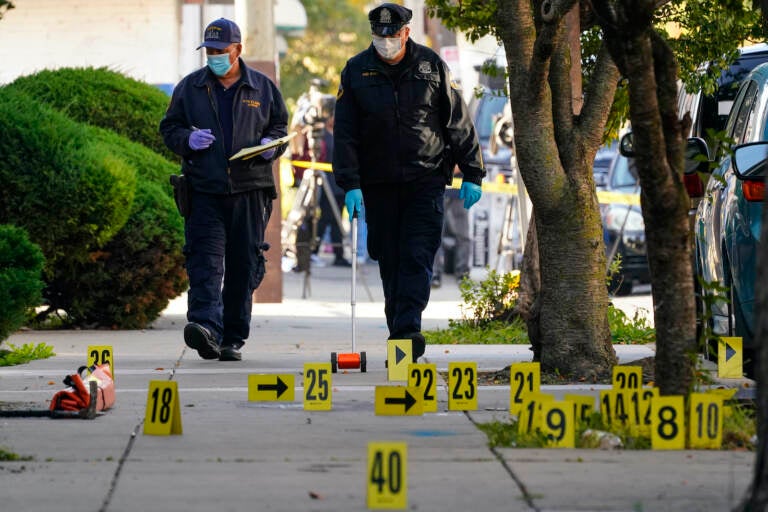
Investigators work the scene where multiple people were shot including police officers when a SWAT team attempted to serve a homicide warrant in Philadelphia, Wednesday, Oct. 12, 2022. (AP Photo/Matt Rourke)
Ask us: As Election Day draws near, what questions do you have?
Dr. Kayla Preito-Hodge was watching a show on Hulu when the commercial interrupted. It was about a race outside of Philadelphia, but it highlighted violent crime in the City of Brotherly Love.
“I was just kind of floored,” she said.
“It seems very theatrical, right? Each of the ads are very theatrical. They have the music going. They have bright colors, and are just, like, really appealing to people’s emotions. And I think that people who are afraid will buy into these things, whether they are Democrat or Republican.”
No one is denying that crime is a growing problem in major cities such as Philadelphia. Violent crime in Philadelphia is 7% higher in 2022 than it was in 2021.
But Republicans are trying to make Philly crime the big issue in the midterm elections — when inflation is also climbing and abortion rights are also on the ballot.
Their fear-mongering commercials pop up in breaks when the Philadelphia Phillies are duking it out in the World Series, or the Philadelphia Eagles are fighting it out on the gridiron. The commercials have captured the attention of everyone — from Will Bunch at The Philadelphia Inquirer to Preito-Hodge, an assistant professor at Rutgers University in the criminal justice department.
Tyrique Glasgow, an anti-violence advocate in Philadelphia and executive director of the Young Chances Foundation, said he’s seen the crime ads, too. He’s very familiar with the “scare tactics.”
He feels like there’s always a focus on the negatives happening in his community instead of the positive. To add insult to injury, he said, the widespread attention on crime is always short-lived and is meant to serve a different agenda, not address real-world problems.
“These are issues that plague our communities every day. And for us leaders, it is really a slap in the face, because it’s an acknowledgement on all parties that these are the things that go on every day,” Glasgow said. “What are we going to do to address it when it’s not November? We have to really step up and hold our leaders accountable — that this shouldn’t happen or be highlighted in any capacity.”
He added that it is a hard sell to get people to vote when the issues remain unsolved and the resources are failing to reach his community.
“Those ads ain’t cheap. Those are multimillion-dollar ads that can fund small block captains, that can help community organizations, that can build small hospitals in communities where they have been plagued by COVID and they know that this is the most vulnerable communities, but this is where they want the highest turnout — with the lowest results and resources,” Glasgow said.
Dr. Danilo Yanich, a professor at the Joseph R. Biden Jr. School of Public Policy and Administration at the University of Delaware, said that using crime in ads is both easy and generally effective for campaigns.
“Their effect is short lived and that’s why you do it over and over and over again,” Yanich said.
In this particular election cycle, a whole lot of money is pouring into the Keystone State. Campaign spending has been trending upwards for years. This midterm election is no different.
According to Open Secrets, outside groups have spent more than $130 million in Pennsylvania’s U.S. Senate race between Lt. Gov. John Fetterman and celebrity doctor Mehmet Oz — which is more money than any other in this cycle.
Using the money for television advertisements is the logical next step. Yanich said that the people putting crime front and center are sticking to a time-trusted strategy.
“One expert on this said you want to have that image, the latest image in the voter’s mind when the person pushes the button or pulls the lever and so that’s why repetition works,” Yanich said.
Crime’s inclusion in political ads is nothing new. In the 1988 presidential race, then-candidate George H. W. Bush unleashed the infamous Willie Horton ad.
Its effects on criminal justice and elections have been felt ever since.
Glasgow said that the new ads that flood the television screens in the Delaware Valley are having an effect as well.
“It’s emotionally and mentally draining on families who know and live in these times every day. They mostly have to relive the violence and their family members who died on them TV ads,” Glasgow said.
For people who have to live these realities, Preito-Hodge said the crime ads might not be as persuasive — especially for local races. She pointed to Philadelphia District Attorney Larry Krasner defeating Carlos Vega in a race where the Protect Our Police PAC aired an ad in opposition to Krasner.
The ad included footage of people committing several acts of gun violence.
However, in suburban and rural areas, where some people may have preconceived notions about Philadelphia and other urban communities, Preito-Hodge said, the strategy of exploiting “white fear and anxiety around criminality” might have more success.
“I think that these ads and the political campaigns will do what the 2020 campaigns were intended to do, in terms of being divisive. I guess furthering, you know, people’s fear of racialized people and people that are racialized as Black in particular,” Preito-Hodge said.
In the summer of 2020, the country was going through a so-called racial reckoning. Preito-Hodge finds it interesting that the U.S. is just a year removed from calls to defund the police and now there are plans to increase police budgets across the country.
She is unsure exactly where this rhetoric will take Pennsylvania next.
“I think that what these ads, and what this rhetoric of ‘tough-on-crime’ and ‘law and order,’ have the potential to do, is to revert back to where we were in the early ‘90s with the ‘94 crime bill and the proliferation and the expansion of mass incarceration in this country,” Preito-Hodge said. “I am fearful of what that might mean for the future. I don’t know how politicians will make sense of this and how they’ll intend to allocate money towards different causes, but I do think that it is very troubling.”
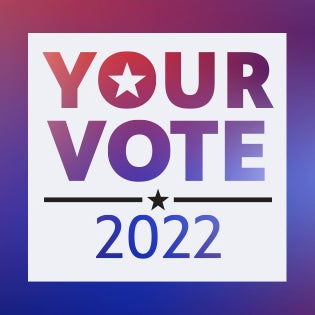
Your go-to election coverage
WHYY is your source for fact-based, in-depth journalism and information. As a nonprofit organization, we rely on financial support from readers like you. Please give today.



